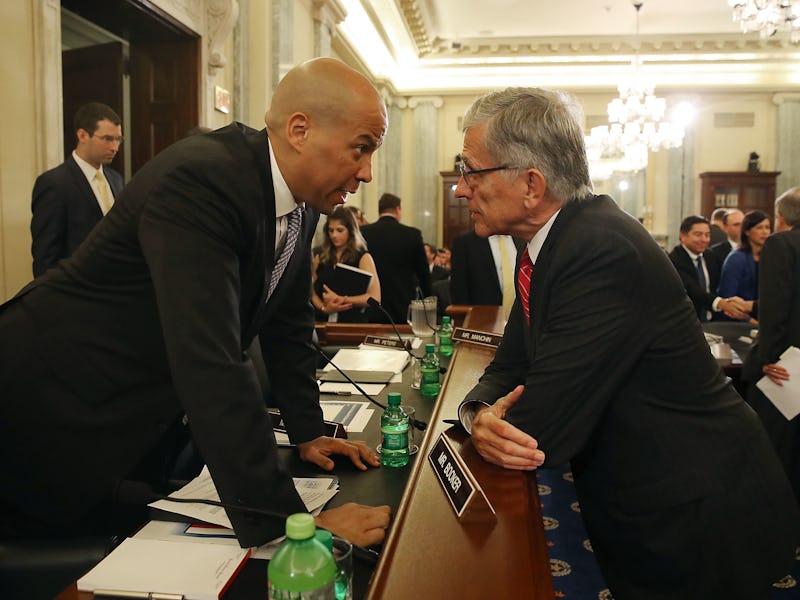It Looks Like Net Neutrality Is Going to Die in 2017
Tom Wheeler is stepping down, and net neutrality will probably go with him.

Federal Communications Commission Chairman Tom Wheeler is done, and so is net neutrality, probably.
Wheeler announced on Thursday that he will step down on January 20th of next year, and won’t sit at the head of the organization during the Trump Administration. Unfortunately for almost everyone who doesn’t own a major media corporation, odds are that means net neutrality is kaput as well. The Senate refused Democratic Commissioner Jessica Rosenworcel’s confirmation to stay on the FCC as well, which gives Republican commissioners a 2-1 majority and two seats open seats to fill. Donald Trump’s administration has already basically announced that net neutrality will be axed, so things aren’t looking good for advocates who want to keep internet service egalitarian.
Wheeler was one of the few appointed officials willing to stand up for net neutrality during his time at the FCC.
“He has been willing to take risks and expend political capital to advance his agenda,” Andrew Schwartzman, a professor of communications law at Georgetown University, told The Hill. “And, unlike some predecessors, he hasn’t been afraid to confront Congress and powerful business interests when they stood in the way.”
In July, a federal appeals court upheld the Obama administration’s stance that net neutrality was in the public interest. Under Wheeler, the FCC defined the internet as a “public utility,” and fought to protect it from corporate interests.
“Today’s ruling is a victory for consumers and innovators who deserve unfettered access to the entire web, and it ensures the internet remains a platform for unparalleled innovation, free expression and economic growth,” Wheeler wrote in a statement in July. “After a decade of debate and legal battles, today’s ruling affirms the Commission’s ability to enforce the strongest possible internet protections – both on fixed and mobile networks – that will ensure the internet remains open, now and in the future.”
But under a Trump administration, Wheeler’s promise could come undone. If net neutrality dies, Internet Service Providers could basically do whatever they wanted with internet access, and customers would pay the prices. ISPs could block access to legal sites, throttle traffic, or create pay-to-browse “fast lanes” that would make companies pay to send data quickly. They could structure this all in a way that harmed their competitors — like Comcast giving its Xfinity streaming service way more bandwidth than Netflix. And with Wheeler gone, that could very much be the world we’re heading for.